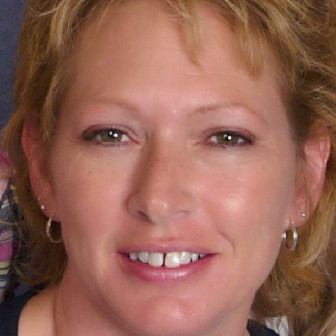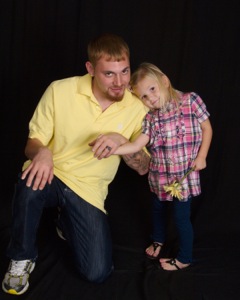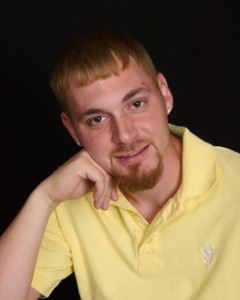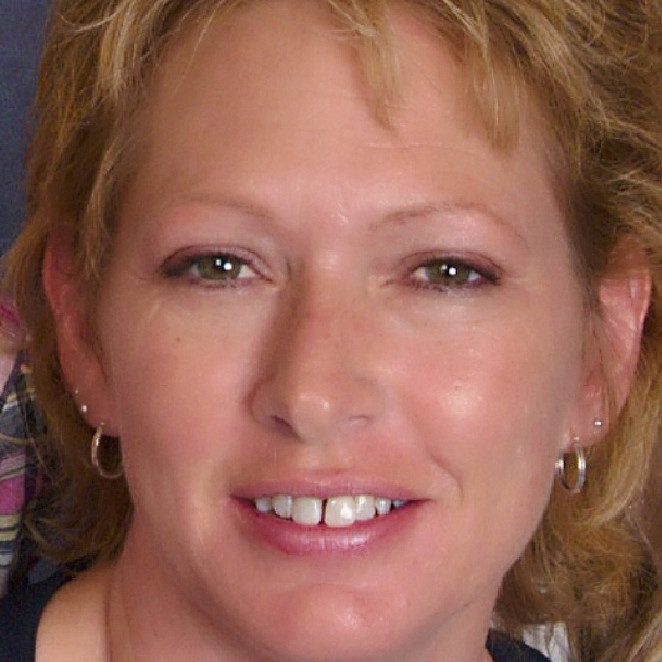Grace Bauer had her entire world turned upside down when her son entered one of the nation’s harshest juvenile justice systems. Fueled by a burning desire to alter the system, she soon became one of the nation’s most impassioned crusaders for sweeping juvenile justice reform.

Grace Bauer
Editor Note: This story is a continuation of the series Mental Health and the Juvenile Justice System: Progress, Problems and Paradoxes. Readers may also be interested in visiting the Juvenile Justice Resource HUB for more information about mental health and the juvenile justice system.
--
The death of Grace Bauer's mother in 1998 triggered a cycle of grief that fully consumed her life for the better part of 15 years. “It became the mark we would measure time by,” she said.
The pain, she said, was especially severe for her eldest child, Corey, who was 11 when his grandmother died. “We were really struggling,” Bauer recalled. “He was acting out at home [and was] suspended from school for the first time.” Although she didn’t have health insurance, Bauer began to see a counselor, who told the rural Louisiana family they needed to “ride out” their difficulties.
Bauer’s son, she recalls, was fairly adventurous as a child. “He wasn’t afraid of things,” she said. “He was always trying some kind of crazy thing on his bike.”
He had brown eyes and red hair. At 5 feet 5 inches tall, he wasn’t an imposing figure. He wasn’t heavy-set, but his mother noted his broad shoulders and barrel-chested physique.
He was an honor roll student who loved four-wheeling through the woods and helping his dad with household chores, she recalled.
In the third grade, Corey was diagnosed with attention deficit hyperactivity disorder (ADHD). The first time he was taken to a therapist, his mother was told Corey may have some “underlying issues,” but because the family couldn’t afford additional testing, he was never diagnosed with any other disorders.
For two years following her mother’s death, Bauer struggled to keep her son out of trouble. “He started to drink, and smoke and he started doing drugs,” she said. “Eventually, he would end up in the deep end of the system and being sent away to state care after we were told that, on the local level, there were no other options.”
Bauer’s son first entered Louisiana’s juvenile justice system after he was arrested for shoplifting a pack of cigarettes. Afterward, he was placed on unsupervised probation before serving several stays at a detention center in Calcasieu Parish, La. For a while, he was placed in a group home. Some time after Corey had moved on, the home was shut down following the death of another resident.
Before Corey’s program began, however, he was processed at the Jetson Correctional Center for Youth in Baton Rouge. There, Bauer said, her son was beaten and neglected. Although she told his probation officer about the conditions at the center after her first visit, each subsequent visit to the facility entailed “more of the same,” she said.
“He had a huge bruise on the side of his head,” she said. “When I asked him what happened, he told me that a guard had hit him.” It was his “initiation” into the system, her son told her, stating that the alleged beating was the guard’s way of showing him who was “in control” of the facility.
As bad as the conditions were there, however, “the worst was yet to come,” she said. (See the Juvenile Justice Resource Hub page on Reform Trends for more information)
The Worst of the Worst
 In March 2001, when Corey was 14, he and two classmates were arrested after breaking into a truck and stealing a radio. He soon found himself at the Tallulah Correctional Center in northeastern Louisiana, a facility once described by the New York Times as the worst juvenile prison in the country. “It was the first system in this country to be sued by the Department of Justice over conditions and concerns about a juvenile facility,” Bauer said.
In March 2001, when Corey was 14, he and two classmates were arrested after breaking into a truck and stealing a radio. He soon found himself at the Tallulah Correctional Center in northeastern Louisiana, a facility once described by the New York Times as the worst juvenile prison in the country. “It was the first system in this country to be sued by the Department of Justice over conditions and concerns about a juvenile facility,” Bauer said.
Corey was originally sentenced to a 90-day program at Tallulah. “I thought of the system as a way to help my son,” she said. “And unfortunately, that was the biggest mistake I ever made.”
The first time Bauer made the more than 200-mile drive from her home in Sulphur, La., to visit her son at Tallulah - a facility, she said, that housed mostly low-level, nonviolent offenders - she saw more signs of abuse. “We go in, and he has a guard’s boot bruised into his ribcage,” she recalled.
“He recounts these stories of this program he’s in that’s supposed to help him get back on track,” she said. “But essentially, what it is, is a boot camp where they run these kids and exercise them to death.” According to Bauer, one of the facility’s guards once dragged Corey across a field and shoved his face into a muddy ditch because he couldn’t complete a physical training drill.
Bauer soon contacted an attorney, who told her that her efforts were fruitless. Once Corey turned 18, the attorney said, he would most likely end up in a state penitentiary. Bauer was advised to keep her money, because there was nothing the attorney could do to help her or her son.
She soon sought help from a capital defense attorney, who had worked with her mother for several years. The attorney told her that most of the men he had met with on Louisiana’s death row had at one point been a part of the same juvenile system her son had recently entered.
In September 2001, Bauer was invited to attend a Juvenile Justice Project of Louisiana (JJPL) meeting in New Orleans. The occasion would mark a new “before and after” moment for Bauer, transforming her from grieving mother to advocate for sweeping juvenile justice reform. (Visit the Juvenile Justice Resource Hub page on Reform Trends and Using Evidence-Based Treatment Programs for more)
A Lack of Care, A Lack of Concern
While her son was at Tallulah, Bauer received a phone call from a state evaluator, warning her that if her son wasn’t removed from the facility, he would most likely die there. He was on the verge of a complete mental breakdown, she was told.
However, when Corey was initially screened upon entering the Louisiana juvenile justice system, he was not identified as having any newly-diagnosed mental health or behavioral disorders. “I never saw any of that paperwork,” Bauer said. “He wasn’t actually diagnosed until after he was in.”
Several months into his eventual 10-month stay at Tallulah, Corey was diagnosed with major depression. Years later, he would also be diagnosed with post-traumatic stress disorder (PTSD). Bauer believes many of her son’s problems developed because he never received grief counseling after his grandmother died. Adequate counseling, in tandem with earlier diagnoses of her son’s pre-existing mental health disorders, may have kept her son out of the juvenile justice system altogether, Bauer said.

“Had we done all those things early on,” she said. “I know we would have averted that.”
Corey was also diagnosed with the rare heart condition Wolff-Parkinson-White (WPW) Syndrome during his incarceration. When Corey was briefly hospitalized as a result of WPW, Bauer said she was never told by facility officials.
Doctors at the hospital wanted to switch Corey to a new medication that would require staff at the facility to monitor him very closely. However, according to Bauer, because the staff couldn’t monitor Corey as closely as he needed, they elected not to give him either the new medication or his previously prescribed medication.
“Knowing that he was dealing with huge emotional trauma and major depression, they completely pulled him off the drug he had been on [and] gave him no care whatsoever after that,” Bauer said.
Jerel Giarusso, a representative of Louisiana’s Office of Juvenile Justice, confirmed that serious wrongdoings occurred at Tallulah. “There were abuses that went on,” she said. However, she stresses that Tallulah, at the time of Bauer’s confinement, was a privately-run facility that was not operated by the state.
“The U.S. Department of Justice did sue us for conditions of confinement,” Giarusso continued. “There was a lawsuit in 1998, we came out from that with a settlement agreement in 2006. And it was dismissed.”
During Bauer’s confinement, what is today the Louisiana Office of Juvenile Justice was called the Office of Youth Development and Youth Services (OYDYS), which was overseen by the state’s Department of Public Safety and Corrections (DPSC). In 2005, then-governor Kathleen Blanco signed an executive order, which separated the two entities. While still administratively a part of the DPSC, the OYDYS had officially become a cabinet-level agency.
Giarusso also stated that, while Jetson Correctional Center for Youth may have had problems in the past, Louisiana has made great strides to improve conditions at the state’s juvenile facilities.
“I can imagine Grace said some pretty horrible things, and there were things that went on there that were unfortunate,” Giarusso said. “And we have made huge changes. In fact, no one would recognize Jetson today.” (Want to learn more? Visit the Hub section on Resources and Improving Services for more information)
A Vicious Cycle Continues

Image courtesy of Grace Bauer
Corey with his neice, Emma.
After being released from Tallulah, Corey was sent back to Jetson, and then a small detention facility near his hometown. He returned to Sulphur in 2002, when he was 15. As part of his parole conditions, he was placed in several treatment programs, including several community-based services for substance abuse and anger management.
He met with mental health professionals on a weekly basis, and was able to earn both a driver’s license and a high school diploma. Despite these accomplishments, Bauer knew that her son was still under a tremendous amount of stress.
“We knew he was still struggling,” she said. “You couldn’t approach him without letting him know you were coming.” When startled, she said her son would start swinging at people. She was afraid to stand next to his bed when she woke him up in the morning, out of fear that he may attack her.
In 2006, Bauer was informed that, years earlier, when her son was 15, he was raped by another juvenile while in confinement. According to Bauer, guards stood by while the assault occurred, taking bets on who would “win.” Several years after learning about the incident, her son has never fully explained to her what happened that day at Tallulah.
“I knew something had happened to him,” she said. “Unfortunately, when the state took him off parole, they also took their mental health care slot with them.” Because her son wasn’t believed to pose an “immediate risk” to himself or others, she said it became difficult getting him into mental health programs on their own.
He was arrested again at 17, serving three years of a nine-year sentence, before a parole violation put him back behind bars for an additional two years. Between 2001 and 2010, Corey spent nearly six years behind prison walls.
Fighting for the Future
By 2003, Bauer had become a zealous advocate for juvenile justice reform, helping found the Lake Charles chapter of Families and Friends of Louisiana’s Incarcerated Children (FFLIC).
“Grace came to our organization seeking help for her son,” said Gina Womack, FFLIC executive director. “As a concerned mother, she was seeking help for her child because, like so many of our families that came to us, what they were told to do when they were seeking help for their children only led to kids deeper into the system.”
Womack said that Bauer was everything her organization was looking for in a reform advocate. “I’ve been doing this work for over 15 years, and what inspires me about Grace, and any of our families, are that they take their tragedies and are able to work tirelessly around the issues so that other families don’t go through the same problems,” Womack said. “A lot of parents are really looking for services, and so Grace has been just a powerful force in being able to ensure that message gets across.”
When she first met Bauer, Womack said she was adamant, albeit soft-spoken. Over the years, however, she believes Bauer has found a way to “amplify” her voice and help other families comprehend the impact juvenile justice system contact may have on young people.
“I’ve watched her really go out there and take that message and work to transform lots of other family members,” Womack said. “When you see someone that has really been transformed into a champion, a voice for families…that’s amazing, and it gives me hope [that] our hopes and our mission at FFLIC can be realized.”
The persistent activism of reformists like Bauer eventually led to the state Legislature ushering in far-reaching juvenile justice system reforms in 2003. The Tallulah Correctional Center for Youth - the facility where her son was allegedly brutalized - was shut down one year later.
Difficulties were still present, however. After 18 years, Bauer’s marriage had ended, and when Hurricane Rita struck Louisiana, her home was destroyed. Even after relocating to Baltimore in 2007, the grief that had plagued the Bauer family for years continued to haunt her.
In 2010, Corey followed his mother to Maryland. In January 2011, he was arrested after robbing a pizza parlor. “He was caught blocks away and immediately confessed,” Bauer said. “He was given a 12-year sentence.”
The day he was sentenced, her son made what Bauer considered a “very powerful” statement to the judge. “I’m not asking you to let me go,” he said. “I do not have the skills I need nor do I have the emotional capacity to make it in this world, and that’s why I’m where I’m at today.”
Bauer explained: “People need to realize that you cannot possibly provide mental health care for a kid living in the current situation or environment that my son was living in. You could have the best medical and mental health providers in the world, and you put a kid in a cage, where every single day that kid is forced to defend himself physically, and has to shut down mentally in order to survive - do you think that somehow your mental health care is going to be enough?”
The year her son was sent back to prison, she became the co-director of Justice for Families, a national organization built around networking families of incarcerated juveniles.

Image courtesy of Grace Bauer
Corey Bauer
“A lot of reform advocates talk about ‘how would you want your child to be treated,’ and Grace has direct, and unfortunate, experience in terms of how her children have been treated by the juvenile justice system,” said Justice for Families Co-Director Zachary Norris. “She has been just extremely dedicated to learning as well as to building the capacity of families across the country to organize and to work for changes to the juvenile justice system,”
Norris said that, recently, Bauer met with representatives of the Office of Juvenile Justice and Delinquency Prevention (OJJDP) to discuss family engagement practices - a testament to how far she has come as a reformer.
He believes that Bauer has a profound understanding of how the system may discriminate against lower-income families, and as such, has a unique connection with underserved families, in particular, those from communities of color. Her personal experiences, he continued, make her a strong spokesperson for other families that have had contact with the deep end of the juvenile justice system.
“It’s not just that she has personal experience, but what I think other advocates have been slow to recognize,” Norris concluded, “that families matter, and that families make a huge difference in outcomes for young people.”
Families that have already been through similar experiences, Bauer believes, are the most well-suited to help other families with children in the nation’s juvenile justice system. “I know families need families,” she said. “They need someone with them to help them get through.”
Recalling her son’s initial problems in school, Bauer notes the lack of “readily available” community support for her family at the time. “We’re actively seeking help, and can’t find it.”
Now, Bauer advocates for the development of community options, especially family-oriented services for parents with children involved in the juvenile justice system.
“A lot of us made the decisions that we made because we didn’t have an option,” she said. “We were left with nothing else, and when you’re left with nothing else, that’s what you get.”
From Victim to Crusader
Bauer’s middle child, 22-year-old Robyn Thigpen of Lake Charles, La. said that as a child, she sometimes felt lonely while her mother campaigned. “It was really hard at first, because I went from having a mom there all the time to her volunteering every minute she could to helping these kids and helping my brother,” she recalled. As she grew older, however, Thigpen said her perspectives began to change. She remembers marching in Baton Rouge, and holding demonstrations on the steps of Louisiana’s Capitol Building. The rallies were both exciting and eye-opening, she recalled.
“I get a great deal of pride seeing her in action,” Thigpen said. “I hope to work in the same kind of field that mom does.”
Although her mother tried to shield her and her younger sister from Corey’s experiences in confinement, Thigpen said she could still detect a certain worry and fear in her mother’s eyes. As her mom’s advocacy work continued, she said that sorrow appeared to give way to an intense resolve to help others.
“She doesn’t go around sad anymore,” Thigpen said. “She goes around it [and] she gets it done.”
She said that watching her mother go from a stay-at-home mom to an activist whom routinely speaks in front of hundreds of people is inspiring. She receives messages on Facebook frequently, from people that just want to tell her how wonderful her mom’s advocacy work is.
“She went from not really knowing how to be outside of her home to this woman who took it upon herself to go and save these kids that no one is really there for,” she concluded. “She’s a fighter now. She doesn’t back down from these people that have allowed this to happen.”
At 45, the former homemaker from Sulphur, La. is now one of the country’s most ardent proponents of juvenile justice reform. Currently, she is rallying for the OJJDP to adopt Justice for Families’ “Family Bill of Rights,” a five point proposal that would guarantee the mothers and fathers of incarcerated juveniles expanded notification and peer support rights. She hopes to one day see the Bill of Rights implemented in every jurisdiction in the nation.
“My work today continues to be towards a youth justice system that includes families at all levels of juvenile justice decision making,” she said. “And peer-to-peer support for all families who have children involved in the system.”
There are no positive outcomes, she said, when youth end up in secured facilities. “What you end up with … are kids that are treated like criminals that go on to become criminals,” she said. “It’s incumbent upon communities to stop investing in the most expensive things we have, which is the bricks-and-mortar prison, and start investing in things on the front-end that keep them from getting there.”
In 2008 - the same year she joined the Campaign for Youth Justice - it seemed as if the Bauer family’s history of grief was repeating itself. Shortly after Bauer’s brother died, she received a phone call that her youngest daughter had been arrested in Louisiana for staying out after curfew.
“She was drunk and very belligerent with the police when she was picked up,” she said.
“A very different mother stepped to the plate when my daughter was involved in 2008 than the mother that stepped up for my son in 2001,” she stated. Bauer said she was now a mother who knew her child was not a criminal, instead seeing her youngest child as a person grieving the loss of her uncle and struggling with divorce. After the arrest, Bauer took her daughter to Maryland and enrolled her in a mental health program.
“Today, she is entering her fourth semester of college,” Bauer said. “Never been involved with the police again.”
The national juvenile justice system changed between the arrests of her eldest and youngest children in 2001 and 2008, Bauer said. Judges have more options, including community-based alternatives that may not have been in place a decade ago. The drastic changes, she said, also demonstrate the importance of taking preventative action when young people begin to display warning signs. (To learn more about positive reforms in family engagement, visit the Hub's Reform Trends section)
“Nobody’s paying to take care of [my daughter] today, except her family and the job she has,” she concluded. “Meanwhile, the taxpayers of Maryland, and ultimately, taxpayers everywhere, will go on to pay for my son.”


First, of all I want to say you are a great and caring mother!!!
When I read your story, I cried and cried, because I like you
went through a similar thing but the only difference is that my son is a
40 year lifer and still in prison. He was tried as a adult at the age of 17
and went to juvenile and I now prison, he says “you don’t want to know
what happens behind these walls mom”, and you bet I am scared for him.
I am from California, and I truly believe the system is not working when
it comes to the young men and women locked up when they need mental
help(regardless of what they did), I as a mother we need more people like
you to rally and strir up attention to what is happening in the system. You know
it is all about MONEY. I will be praying for you and all the families that are going
through all the injustices the system does to our kids and us. Keep up the good work!!!!